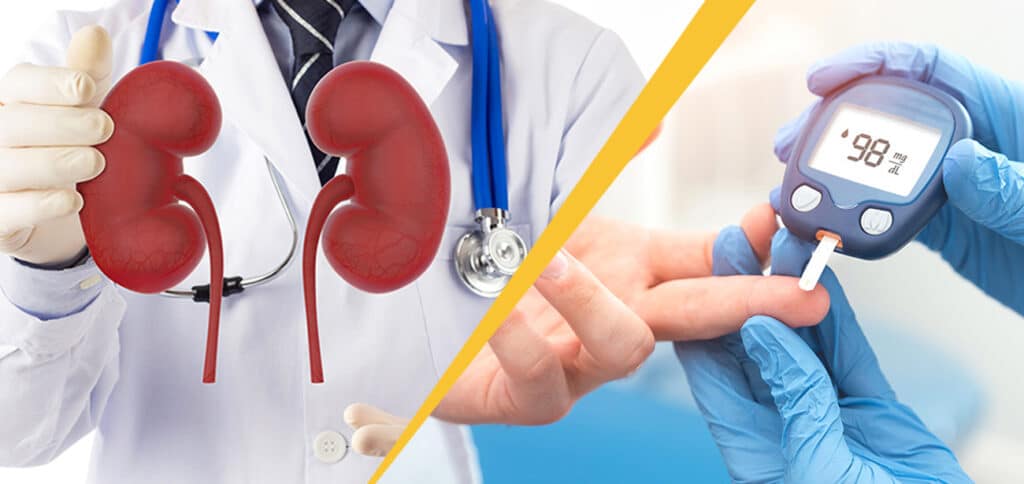Investigating INV-202
Diabetic Kidney Disease (DKD) is a severe complication affecting a significant portion of individuals with diabetes, whether it be type 1 or type 2. This condition is progressive, leading to kidney damage, and potentially requiring dialysis or a kidney transplant. The implications are not limited to kidney health; it also increases the risk of cardiovascular diseases. Fortunately, medical research is constantly striving to find innovative solutions to address this pressing issue.
One promising development in the field of DKD research is the Phase 2 Study of INV-202. This clinical trial is set to explore the safety and efficacy of a groundbreaking medication designed to revolutionize the management of Diabetic Kidney Disease. Fill out this form to see if you or a friend qualify for Continuous Glucose Monitors.
Understanding Diabetic Kidney Disease
Diabetic Kidney Disease is a common consequence of diabetes, with an incidence rate of 20-40%. It’s important to note that DKD is a progressive condition, meaning it worsens over time. Ultimately, it can lead to kidney failure, a dire situation that necessitates life-saving interventions such as dialysis or transplantation. The connection between diabetes and CKD also increases the likelihood of cardiovascular disease, further underscoring the importance of finding effective treatments.
While SGLT-2 inhibitors have shown potential in reducing the risk of DKD progression and kidney failure, more options are needed, especially for individuals with type 1 diabetes. In the recent past, Jardiance (empagliflozin) received approval in both the United States and Europe for treating CKD, irrespective of diabetes status. But there is still a gap in available treatments, particularly for type 1 diabetes patients.
Must Read About CGMs in noncritical care hospitals optimizes glycemic control
INV-202: A Game-Changer in DKD Research
Enter INV-202, a peripherally-acting cannabinoid receptor (CB1) inverse agonist, developed by Inversago Pharma Inc. This innovative medication targets receptors involved in regulating metabolism and appetite. It shows great promise in managing a range of metabolic conditions, including diabetes, obesity, kidney disease, and fatty liver disease.
One key distinction of INV-202 is its peripherally acting nature, which sets it apart from previous drugs like Rimonabant, which had unacceptable psychiatric side effects. INV-202 is specifically engineered not to cause these psychiatric complications, making it a safer and more patient-friendly option for those with DKD.
Must Read Diabetes Stigma: How to Combat Stereotypes and Prejudices
The INV-202 Clinical Trial
The Phase 2 Study of INV-202 in Patients with Diabetic Kidney Disease aims to explore the safety and effectiveness of INV-202 in individuals who have been diagnosed with kidney diseaseas an outcome of whether type 1 or type 2 diabetes. The trial will monitor changes in the Urinary Albumin Creatinine Ratio (UACR), a crucial indicator of kidney damage, and the estimated glomerular filtration rate (eGFR), a measure of kidney function, over a 16-week period. The full study will span approximately 22 weeks.
This clinical trial plans to recruit 240 participants who will either receive INV-202 or a placebo. Success in this phase could pave the way for large-scale Phase 3 trials and eventual FDA approval for both type 1 and type 2 diabetes patients. Such an approval, particularly for type 1 diabetes, would be a groundbreaking development considering the limited treatment options currently available.
Read Guide about Wegovy Dosage Guide: The Best Way For Weight Loss
Conclusion
The Phase 2 Study of INV-202 in Patients with Diabetic Kidney Disease offers new hope for individuals grappling with the challenges of DKD, especially those with type 1 diabetes. With INV-202’s innovative approach and potential to address the limitations of previous medications, this trial is a significant step forward in the fight against Diabetic Kidney Disease. By joining this research endeavor, you can play a vital role in advancing the future of diabetes care. Don’t miss this opportunity to be a part of a promising solution for DKD.


